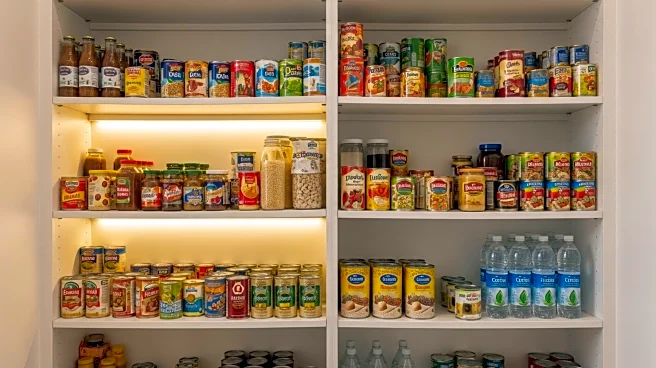What's Happening?
In Sweden, a recent survey conducted by Novus and commissioned by Lantmännen reveals that 66 percent of Swedes are concerned about potential food shortages in the event of a crisis or war. This marks an increase from last year's figure of 59 percent. The survey highlights a growing concern over Sweden's food self-sufficiency, with only half of the food consumed being produced domestically. In response, the Swedish government has announced plans to build strategic reserves to enhance food security. Lantmännen advocates for further measures to increase domestic food production and ensure long-term resilience.
Why It's Important?
The rising concern among Swedes about food shortages underscores the importance of food security and self-sufficiency in national crisis preparedness. Sweden's reliance on imported food makes it vulnerable to global disruptions, emphasizing the need for strategic reserves and increased domestic production. This situation presents an opportunity for Swedish agriculture to expand and innovate, potentially boosting the economy and reducing dependency on imports. The government's actions and Lantmännen's initiatives could strengthen Sweden's resilience against future crises, ensuring a stable food supply for its population.
What's Next?
The Swedish government is expected to continue developing strategic reserves and may implement policies to support increased domestic food production. Lantmännen's call for further measures suggests potential collaboration between the government and agricultural stakeholders to enhance food security. As awareness grows, consumers may increasingly choose Swedish and farmer-owned products, supporting local agriculture. The success of these initiatives could serve as a model for other countries facing similar challenges, promoting sustainable food systems and crisis preparedness globally.









